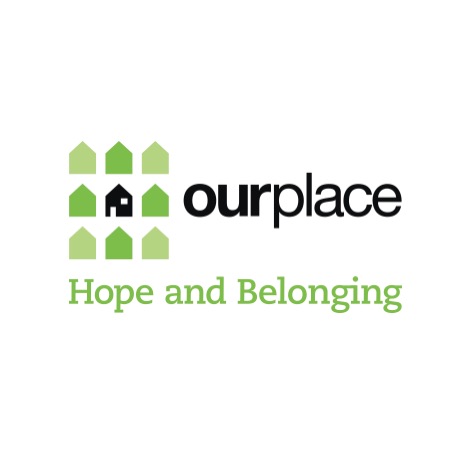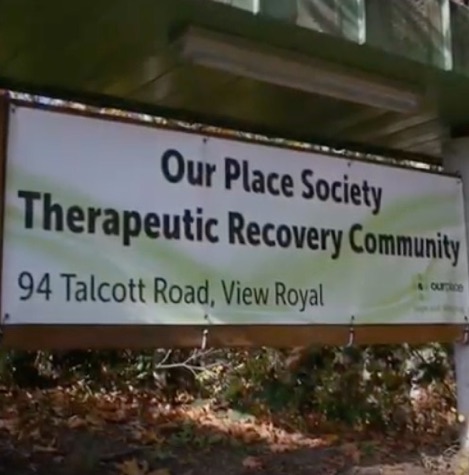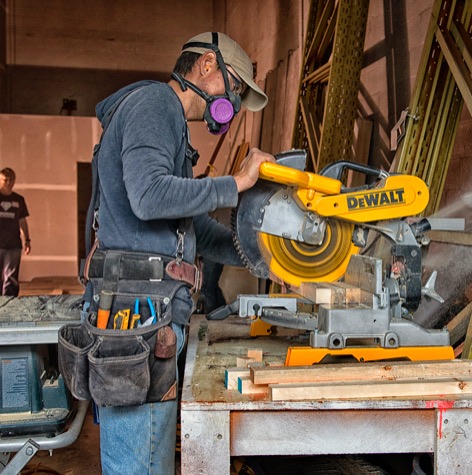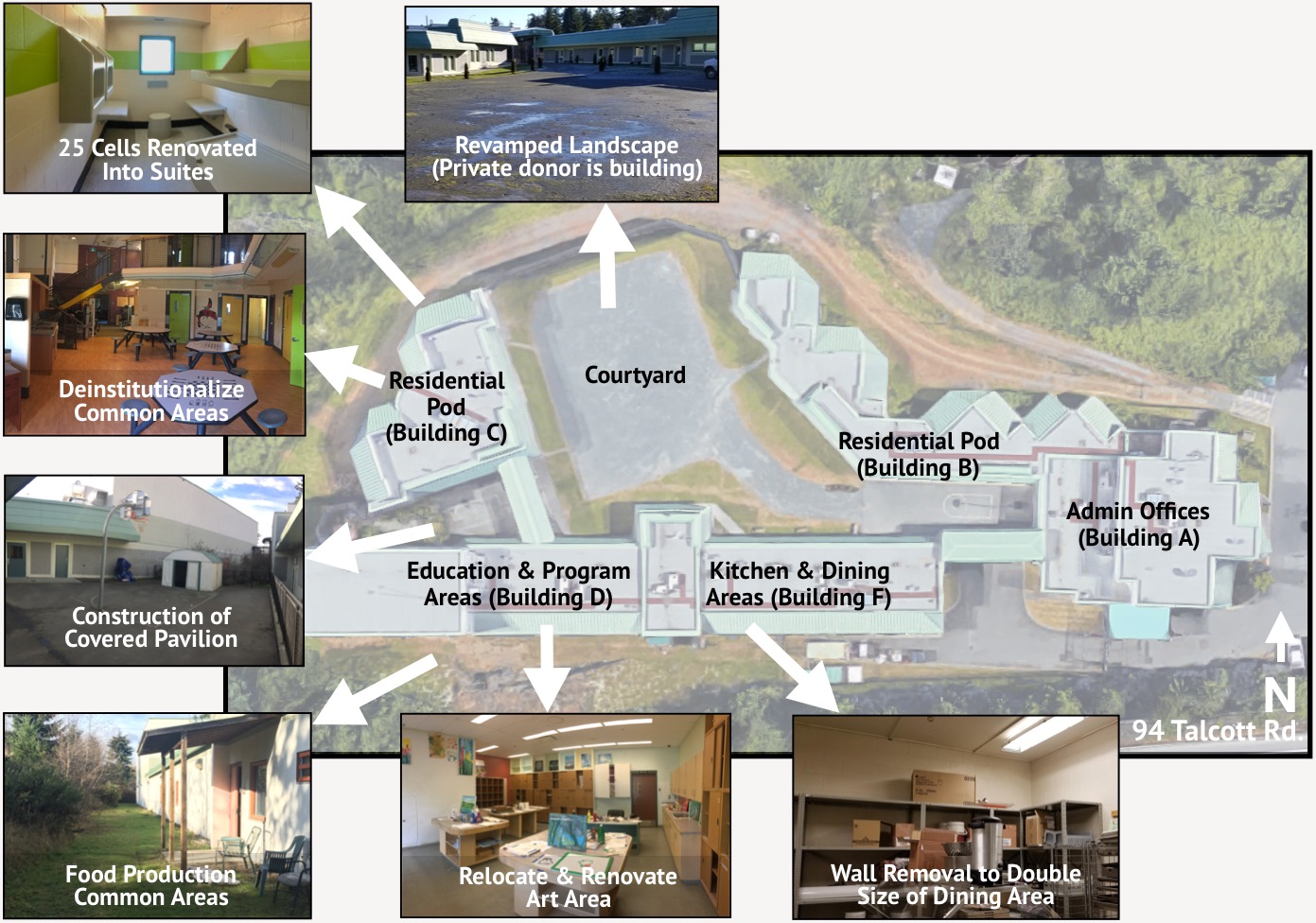Spring 2019 Project:
Completed: Our Place's Therapeutic Recovery Community
Join the HeroWork community and help renovate an old youth detention facility into a place of healing and transformation.
The Issue
Homelessness, addiction, incarceration and marginalization: these problems represent a repeating complex and interconnected pattern that causes too much suffering in our community. A long term, innovative, and multi-faceted solution is needed.
Our Place has come up with a solution.
They have developed a Therapeutic Recovery Community. It’s been modelled from an Italian community called San Patrignano that reports a 72% full-recovery rate for thousands residents who complete their program.
Using a “Community as Model” approach, this program will house men for up to two years, engendering healing and self-empowerment so that they can return to society and lead productive lives.
The Project
Our Place’s Therapeutic Recovery Community had already opened at an old youth detention facility on Talcott Road in View Royal. They were ramping up to 50% capacity, which is the limit the facility could handle.
HeroWork wanted to help get them to 100%!
This meant transforming areas of this former jail into an environment of healing, community, and transformation.
Where
94 Talcott Road in View Royal.
SEE COMMUNITY POWER
Watch what 500 volunteers and 100 companies can do in 6 short weeks.
Our 2019 Partners
Without these people & companies we wouldn't be able to organize and complete our 2019 Radical Renovations. Thank you to each of them!
Get More Details

History of Our Place
Our Place Society, located on Pandora Avenue, was purpose built in 2007 as the amalgamation of two of Victoria’s most active social organizations in serving the region’s most vulnerable population.
The Upper Room Society, founded in 1967 was started as a coffee house with the intention of providing space for anyone needing shelter from the rain. With growth in Victoria over the next 20 years, by the mid-80s there was a need for expansion and the building at 919 Pandora Avenue was purchased. What had formerly been a halfway house for William Head Penitentiary, the building was able to house 23 people. By 1987, the Upper Room re-opened with enhanced food preparation capacity and transitional housing for men.
In 1986, in the annex of the Metropolitan United Church, The Open Door was founded. This inner city ministry of the United Church of Canada was intended to be the living room of downtown, a place where people could get out of the weather and receive unconditional love in a non-judgmental way. Struggling to find a permanent location, The Open Door moved to various locations around Victoria until 2002, when it occupied 935 Pandora Avenue, directly adjacent to the Upper Room.
This close proximity led to increased cooperation between the two neighbours. The two organizations had similar values and goals and served the same individuals – members of Victoria’s inner city community, the homeless and the working poor, so it was not long before a joint venture was envisioned.
Our Place Society, incorporated in June of 2005, was the alliance of the Open Door and the Upper Room. Demolition of the Open Door building was necessary before construction of the new Our Place building could begin on the 919 Pandora Avenue site. In 2006, Our Place Society drop-in centre moved to an interim location at 713 Johnson Street, into premises made available through Cool Aid and AIDS Vancouver Island.
After many years of planning from staff, volunteers and family members, the first section of the new Our Place Society building was completed in 2007, with residents moving in only days after receiving the occupancy permit. On Dec. 12, 2007, a circle was completed when Allen Brasch, who ate the first-ever bowl of soup at the Upper Room 30 years previously, enjoyed the first meal in the new dining room. With the building completed, and family members and residents able to use the facility, the Upper Room building was demolished so the courtyard and parking lot could be built. It was April 2008 when Our Place Society finally rested under one roof, with capacity to bring hope and belonging to the many vulnerable citizens in Greater Victoria.

About the Therapeutic Recovery Community
The TRC offers a strengths-based community approach to recovery in which individuals have the opportunity to receive education regarding the disease of addiction and the supports to conquer the factors that are limiting their ability to achieve a full recovery. The primary goal of a Therapeutic Recovery Community is to foster individual change and promote positive growth that helps an individual return to society and lead a productive life. By using a Community as Method approach, all community members have a responsibility to hold both themselves and others accountable, challenge criminal thinking, and learn how to embrace pro-social behaviours and relationships.
The intent of Our Place in establishing a TRC is to provide critical recovery focused supported housing that compliments the Housing First Strategy in Greater Victoria. The program will address such barriers to recovery as trauma, brain injury, abuse, mental health, and criminality.
In collaboration with business and community leaders, we have developed a comprehensive Therapeutic Recovery Community Program that is ready for immediate implementation. The initiative will:
- Provide a long-term recovery solution for the ever-growing opioid crisis in British Columbia.
- Provide an immediate response to the opioid crisis through additional mental health and addiction services.
- Fill a gap in our community by providing long-term recovery for people who have had multiple failures through existing addiction and mental health services.
- Provide the opportunity for indigenous and non-indigenous individuals, who have had multiple engagements with law enforcement, health services, and jails, the opportunity to heal and contribute to society.
- Take the hardest to treat who are often a drain on community resources and equip them to thrive in the community.
- Address the underlying issues of addiction such as trauma, mental health, acquired brain injury and/or criminal and violent behaviour.
- Prevent homelessness by redirecting individuals released from jail into a long-term recovery program instead of on to the street.
- Provide a therapeutic recovery alternative to incarceration for individuals struggling with severe addiction.
- Enable alumni to become champions and role models for peers still engaged in active addiction.
- Change lives of future generations by breaking the devastating cycle of addiction in families.

Renovation Details
Residential Pod
- De-institutionalize the space (Previous Detention Center)
- Professionally designed Interior makeover.
- New space will reflect Warmth, Home, Community and Healing.
- Numerous upgrades to lighting
- Numerous upgrades to plumbing
- Re-allocation of common spaces to include, Library, Study, two living rooms, two entertainment areas and a games room.
- Installation of staff area, nursing station and medical room.
- Re-purposing 25 “cells” to become 25 micro suites to accommodate up to 50 men.
- New flooring, Paint, furniture and art throughout.
Education &Programs Building
- New enriched one on one counselling room
- New Arts and Projects room complete with from ceiling power supplies, Kiln, spray booth and mobile work spaces to allow maximum versatility.
New Dining room expansion
- Radical demolition of space next door to current dining area.
- Demolition of neighboring storage areas and wall between current dining room and the freshly emptied space next door.
- New flooring, Paint, Accordion dividing partition.
- New dining area expands from 50 to 100 occupants!
Food Production Area
- Professionally designed food production program.
- Professionally designed food production infrastructure tailored to the specific program.
- A well thought out planted area to provide fruits and vegetables for use in the community and for social enterprise.
Covered Pavilion
- Open sided exterior gathering space available when weather is bad.
- Will act as a threshold to the sweat lodge situated behind it.
Community Collaboration was Key
Phase 1
The TRC represented a collaboration of many different groups. Our Place had the vision and expertise. Private partners and several government agencies provided support, including $4.7 million by Ministry of Mental Health and Addictions for operations and $310K from BC Housing for Phase 1 renovations as well as a $1/year lease.
These resources had Phase 1 of the TRC operational (Building B, A, and parts of F, below).
Phase 2 - HeroWork
This phase represented another BIG collaboration. A private donor revamped the courtyard into a beautiful healing landscape. At the same time, HeroWork mobilized our community (over 100 companies and hundreds of volunteers) to renew the detention facility into a home for 50 men. This meant that in Building C we redid 25 two-person suites, as well as upgrading the flooring, electrical, plumbing, storage rooms. We built a library, redid the common areas and much more. We also doubled the size of the dining room, relocated the art area, built an outdoor pavilion and infrastructure required for food production. The list goes on.
Basic Renovation Elements Map - Phase 2

HeroWork Testimonials
Great crew, organization, and atmosphere.
Past HeroWork Volunteer
I love being on Facebook and photo duty. Share the love and community spirit!
Past HeroWork Volunteer
Great to see all the amazing effort that's gone into this transformation and kudos to everyone who stepped in to help others.
Past HeroWork Volunteer
I am very moved by the whole experience & being part of an enthusiastic community effort.
Past HeroWork Volunteer
